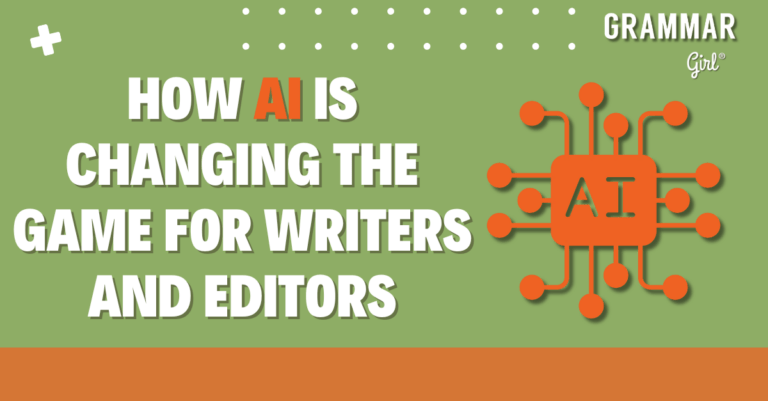As AI become more capable and accessible, writers and editors are feeling the shift—some with curiosity, others with concern. In a recent Grammar Girl interview, Mignon Fogarty sat down with Samantha Enslen, owner of Dragonfly Editorial, to talk about how AI is reshaping the world of content creation.
Samantha offered a candid, balanced perspective from the front lines of running an editorial agency—where the tools are evolving quickly, but so are the conversations about how and when to use them.
Clients are using AI—but it doesn’t always save time
Samantha says some clients have started using AI for basic tasks, like transcription or summarizing documents. In a few cases, her team has even recommended AI tools when they’re more efficient than manual work.
But in other cases, the shortcuts haven’t paid off. One client had AI generate blog posts and asked Dragonfly to polish them. The revisions took more time than starting from scratch.
“It backfired because they wound up taking more time for us to fix what AI made than if we had just done it ourselves.”
That experience echoes what many other writers and editors have said: AI can help, but it still lacks the nuance and judgment of a skilled human.
Using AI as a tool—not a replacement
Rather than viewing AI as a threat, Samantha sees opportunities to use it wisely—especially for time-consuming, low-stakes tasks. One example she gave was formatting bibliographies and reference lists, which can be tedious and can vary by style guide.
Tools can now get those citations mostly right, and editors can use that head start to focus on the parts of a project that require human judgment and creativity—like strategy, substantive editing, and project management.
“If we can spend less time on the tedious stuff and more time on the substance, that’s good for us and good for the client.”
The bigger picture: will AI shrink creative teams?
If AI makes some tasks faster, does that mean fewer hours of work—or even fewer jobs?
Samantha’s not sure what the long-term effect of AI will be on jobs, but she’s hopeful. Her bet is that AI will free up time for more strategic, higher-value work: things like project management, content planning, and big-picture messaging.
“I’m gambling-on-slash-hoping that it’s the opposite. That we’ll have more time for creative, strategic work.”
She compared it to the rise of tools like word processors or the promise of the “paperless office”—none of which led to less work, just different kinds of work.
To listen to the whole interview on the go, including a thoughtful discussion about how businesses can ethically adopt AI and a few fun book recommendations from Sam’s personal reading list, check out the podcast on Apple Podcasts or Spotify.
Also, check out a second interview where Sam gets into more detail about how, exactly, her agency is using AI these days.




